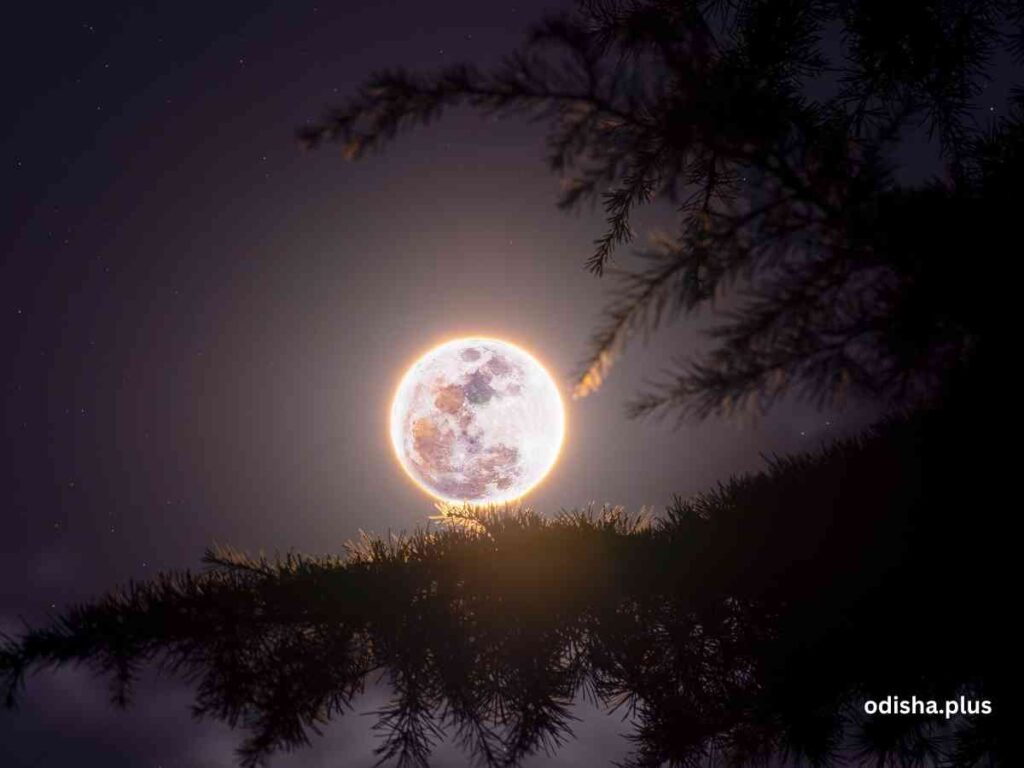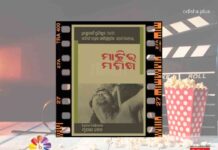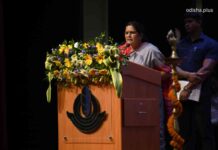Magha Poornima, the end of the Magha month, is a time for spiritual reflection and purification
Sujata Praharaj

Time flows, people age, places change, life transforms. Things and events run like static things on a railway journey. Memories fade. New things, new places, new happenings push human beings on a ceaseless journey to the eternal end. Still, some childhood events and people remain ever dear to heart, roaming in the world of memories hard to fade. They are ingrained in the heart and soul to fall feeble.
When a childhood passes in a purely panoramic village atmosphere with vast crop fields, big and small ponds, round cement benches around banyan trees, called ‘chautara’ in the local language, ‘Grama Devati’ at the end of each colony of the village adjacent to which vast pieces of land stretch themselves out, community festivals used to fascinate people in an age bereaved of televisions and smartphones.
In the countryside far from the hustle and bustle of an engaging life, where ego, jealousy, and riches failed to leave their imprints in the simple, undecorated minds, people enjoyed the celebration of festivals that were pure to Odia culture, percolated down to social life from the scriptures.
It was the end of the pious month of Magha. As the chilly winter prepared itself to bid adieu, the villagers were all set to bid it farewell and welcome Spring, the King of Seasons. The holy ‘Magha Snana’ enticing the elders, irrespective of gender, to have dips in the village ponds in the wee hours throughout the month, drew to an end. Magha Poornima, the full moon day of the month arrived.
Magha Poornima or Agnyustab Poornima is known as Agijala Poornima in Odisha. A corrupt version of ‘Agijala’ or ‘Burning of Fire’ is celebrated, even today, by the villagers to worship and pacify Agnidev, the Fire God to keep the village from fire. With the Moon God as the presiding planet and Lord Shiva as the presiding deity of Poornima, the day would start with salutations to these gods in village temples. But what marked the occasion was the impatient waiting for the evening.
As the sun slipped down the western sky, young people would start collecting straw and wood from each house. In a poverty-strewn rural village, two lines of thatched houses ran in the most asymmetrical blend. The pucca houses that stood like a few cranes amidst crows, could be counted on fingertips and boastfully showed themselves off as ‘Jamindars’ houses’.
The incidence of the festival used to fall on these rich people for the obvious reason. They were the major contributors of straw and wood. Though bundles of straw were taken to the village end from ‘dhana khala’, an open place where paddy and straw were stored, each house was taken care of against the wrath of Agnidev. A bunch of straw was pulled from the thatched roof as a contribution to the house.
The villagers would reach the village end as the plate-shaped bright moon started jumping up into the sky. A ‘homa’, the oblation in reverence of the Fire God would start with the chanting of hymns. At last, the long wait would come to an end with the much-awaited ritual. The big heap of straw would be lit up with ‘homa agni’ (fire from the oblation). The dry winter atmosphere sped up the fire to engulf the large heap. Villagers circumambulating the flaring fire would throw vegetables, coconuts, straw, and small wood pieces to keep the fire glowing.
The fun would continue till the moon rode overhead. By that time all would stand ready for the most cherished action, finding the vegetables and coconuts with bamboo sticks. One who found the burnt stuff was considered virtuous and lucky. Instead of keeping the ‘prasad’ with himself, he would throw it and all would run to fetch it. A fan-fare, indeed. Sooner would start all kinds of games in the silver-studded field.
The bondage of love, respect, and fellow-feeling would blush in laughter. By the time village get-together came to an end, the birds would start chirping in the nearby trees. Slowly would move the line to the village ponds.
(The writer is a bilingual columnist, writer & an officer in the Finance Department. Views expressed are personal.)

























